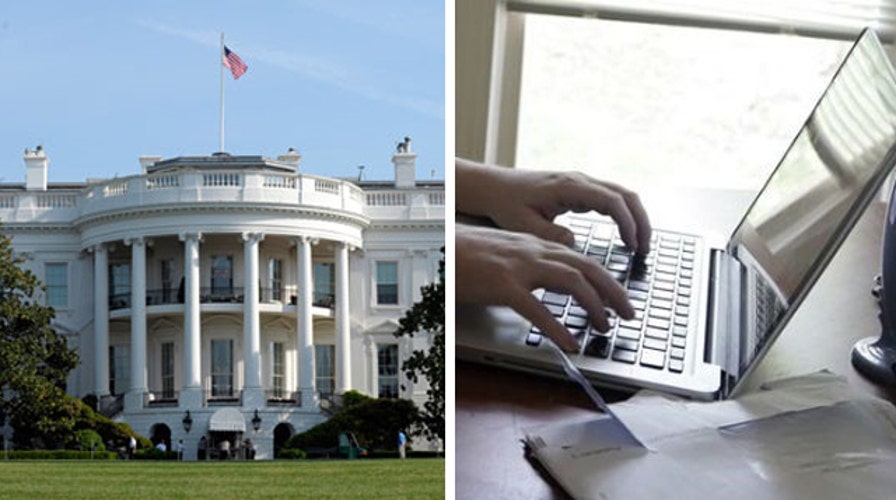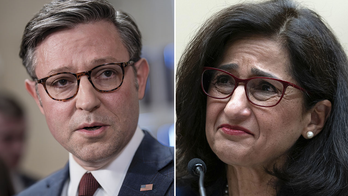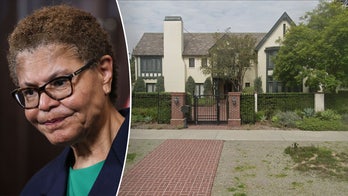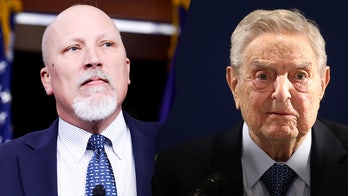WH moving forward with plans to regulate broadband industry
Doug McKelway reports from Washington
President Obama is diving deeper into the debate over Internet control, urging the Federal Communications Commission to pre-empt state laws that restrict local governments from building broadband services.
The president unveiled his plans Wednesday in Cedar Falls, Iowa, one of a handful of American cities -- along with Chattanooga, Tenn., and Kansas City, Mo. -- offering government-provided, high-speed Internet.
The White House touts these networks as a fast and affordable option for consumers. And Obama sees them as local models for so-called net neutrality -- his plan to preserve an open Internet, free of tiered pricing and restrictions imposed by commercial providers.
"Today, high-speed broadband is not a luxury. It's a necessity," Obama said Wednesday. "This is about helping local businesses grow and prosper and compete in the global economy."
But the move has angered Republicans and others who worry the federal government is trampling on the ability of states to set their own rules.
Sen. Deb Fischer, R-Neb., on Wednesday accused the president of pushing a "federal takeover of state laws governing broadband and the Internet."
According to the White House, 19 states have laws restricting municipal broadband networks.
Fischer and other lawmakers worry about the impact an array of local government-run broadband networks would have on the private sector. She and 10 other Republican senators wrote to the FCC last summer urging the commission not to "force taxpayer funded competition against private broadband providers -- against the wishes of the states."
Advocates of those state laws say they are designed to protect taxpayers from municipal projects that are expensive, can fail or may be unnecessary.
The National Governors Association and the National Conference of State Legislatures have urged the FCC not to pre-empt state laws on broadband.
But the administration argues these state measures stifle competition.
Obama wants to expand access to broadband communications services, siding with local communities that want either to expand competition or provide municipal services themselves. To promote it, he announced that his administration will provide technical and financial assistance to towns and cities that want to improve Internet service for their residents.
The proposals do not require congressional approval and are part of a series of measures Obama is rolling out before his State of the Union address next week.
The administration's stance would put it at odds with major cable and telephone companies such as AT&T, Comcast and Time Warner Cable Inc., that currently provide Internet service, often with little or no competition. Obama has already angered the industry by calling for new FCC rules that treat Internet service providers as public utilities, as part of his net neutrality push.
In a White House video before the announcement, Obama says: "You know what it feels like when you don't have a good Internet connection. Everything is buffering, you try to download a video and you've got that little circle thing that goes round and round, it's really aggravating."
"There are real world consequences to this and it makes us less economically competitive," he says.
Jeff Zients, director of Obama's National Economic Council, said Obama wants to use the bully pulpit of the presidency to press the FCC, an independent regulatory agency, to "ensure that all states have a playing field that allows for a vibrant and competitive market for communication services."
The FCC is already considering requests for Chattanooga, Tennessee, and Wilson, N.C., to prevent state laws from blocking the expansion of their broadband projects. FCC Chairman Tom Wheeler said in June that local communities that want to provide their own broadband service "shouldn't be stopped by state laws promoted by cable and telephone companies that don't want that competition."
A new White House report says that while 94 percent of Americans living in urban areas can purchase an Internet connection of 25 megabits per second, only 51 percent of Americans in rural areas have access to such Internet speeds.
The report also says that because of lack of competition three out of four Americans lack a choice for such Internet service.
The White House also announced that the Commerce Department would promote greater broadband access by hosting regional workshops and offering technical assistance to communities. The Department of Agriculture also will provide grants and loans of $40 million to $50 million to assist rural areas.
A council comprising more than a dozen government agencies will also seek to remove regulatory and policy barriers that hinder broadband competition, the White House said.
Fox News' Doug McKelway and The Associated Press contributed to this report.





